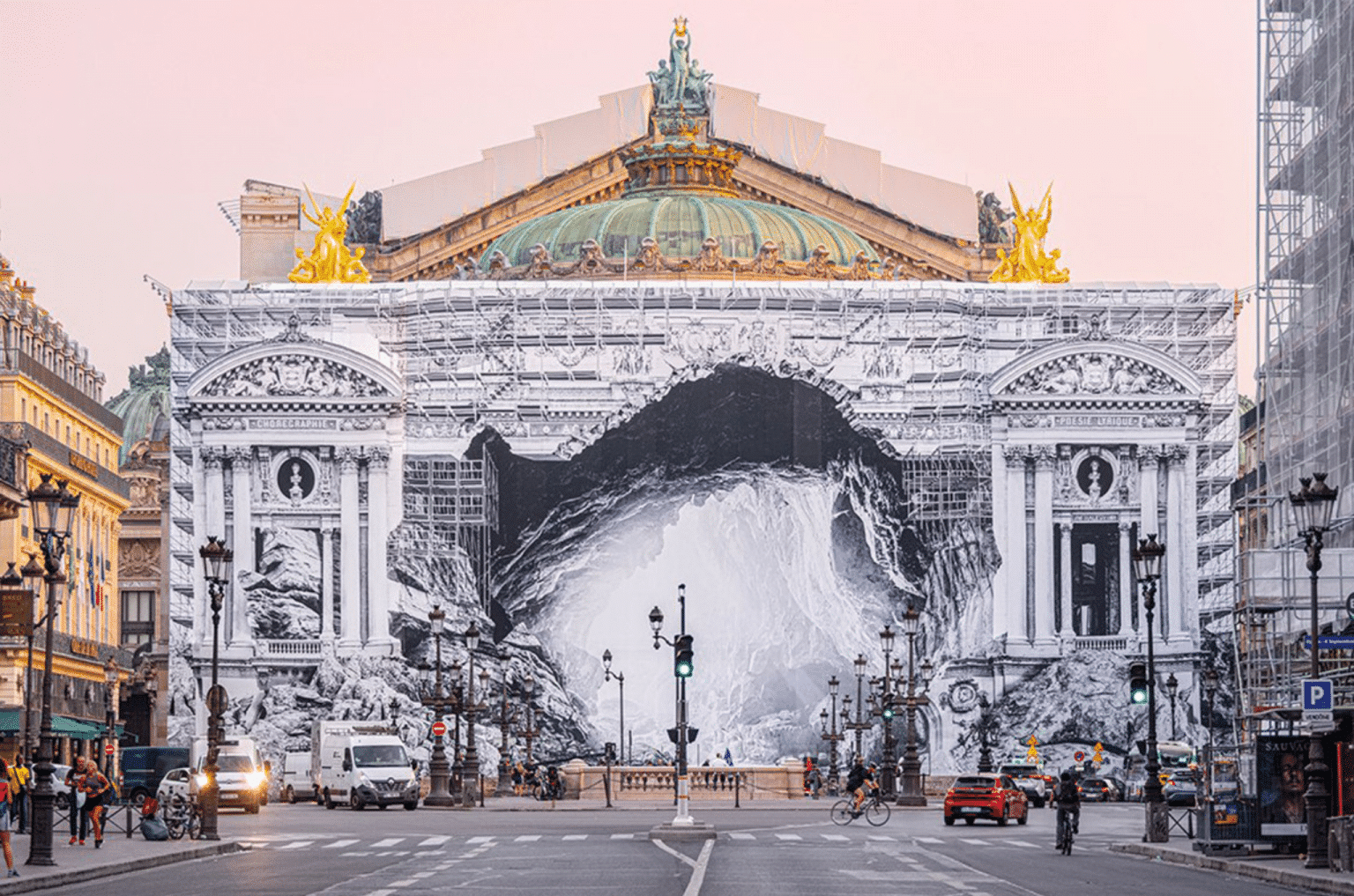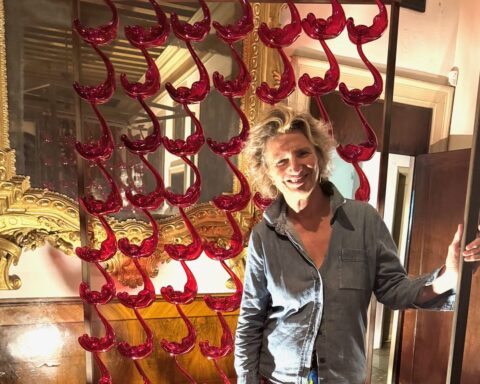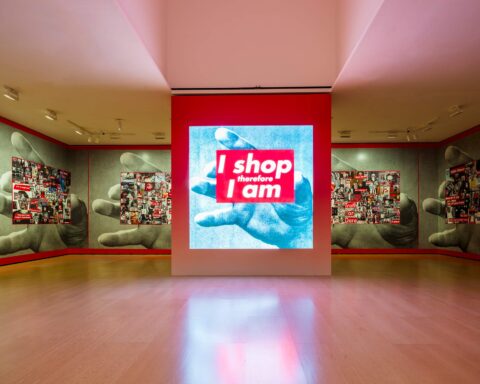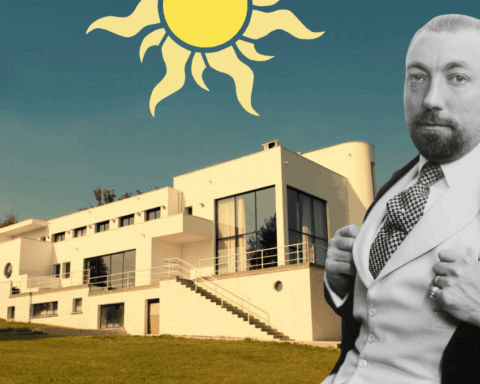A veteran of camouflaging monuments, like Christo, JR has chosen the Paris Opera and its Belle Epoque façade by Charles Garnier for an XXL artistic happening on view until September 25.
While concealing the opera house’s restoration work, the ephemeral installation does not forget to offer entertainment, featuring a forthcoming screening of works from the repertoire of this temple to the art of opera in the heart of the City of Light.
Hide the scaffolding that I can’t see – this is not yet another injunction from the Mayor of Paris in the run-up to the Paris 2024 Olympic Games, but a trend that has been in force for some time now on the streets of the capital. Only this time, it’s not another brand happening like the highly successful ones by Dior, Vuitton, Chanel and co. No, this time it’s the committed artist and king of street art: JR…
A work inspired as much by history as by philosophy
Since Wednesday September 6, Parisians and tourists from the surrounding department stores have been able to see a monumental canvas covering the main façade of the Garnier Opera House. Renovation work began in April 2023 and is scheduled to continue until the end of 2024.
This trompe-l’œil canvas features a rocky excavation, as if ripping open the building.
A new anamorphosis of a monument that the artist describes on his Instagram account as “the entrance to an immense cavern opening onto a perspective of rock and light”.
Playing on the romantic codes of the 19th century in the style of painter Hubert Robert, as well as references to the great stage sets of operas by Berlioz or Wagner, the Napoleon III architectural elements appear to be caught up in a double temporal movement.
In addition to the ruins of a past that would see Parisian monuments subjected to their own fragility and questioning their eternal character, we catch glimpses of a work in permanent reconstruction, as evidenced by the numerous scaffolding structures present. A nod to the real and necessary work that physically supports this new installation.
The work doubles as a psychological reflection.
JR has chosen to illustrate a philosophical concept that is as familiar to bachelors as it is difficult to understand: the myth of the cave.
In other words, a place whose exit allows access to knowledge and understanding of the world depicted by Plato in his book The Republic.
But the press release also points out that this cavern takes the spectator back to “the origins of ballet and opera, when song and dance celebrated the deities of archaic Greece in caves set up for festivities”.
A new, sublimated monument
This installation at the Opéra Garnier is a continuation of the work of artist JR -real name Jean-René- born in 1983. Just like his unmistakable silhouette, made up of a hat and sunglasses: black and white.
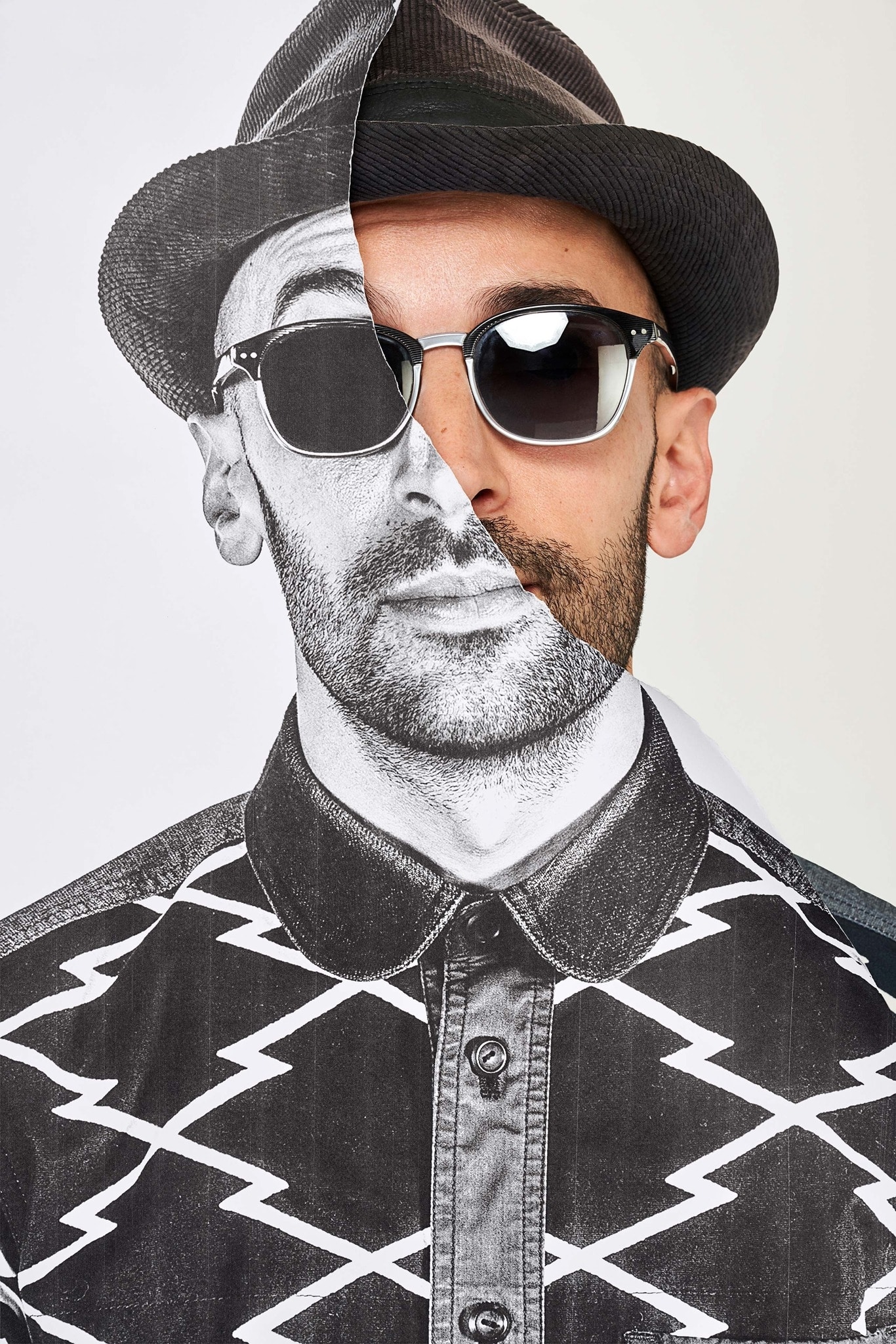
Numerous monuments, urban and otherwise, have passed through his expert hands, including the Place du Trocadéro under the Eiffel Tower, the Louvre Pyramid in Paris – twice (2016 and 2019) – and the Palazzo Farnese in Rome and the Palazzo Strozzi in Florence.
His Florentine work, called La Ferita, or “the wound”, a supposed breach in a 15th and 16th-century palace, is reminiscent of the work currently on display at the Palais Garnier.
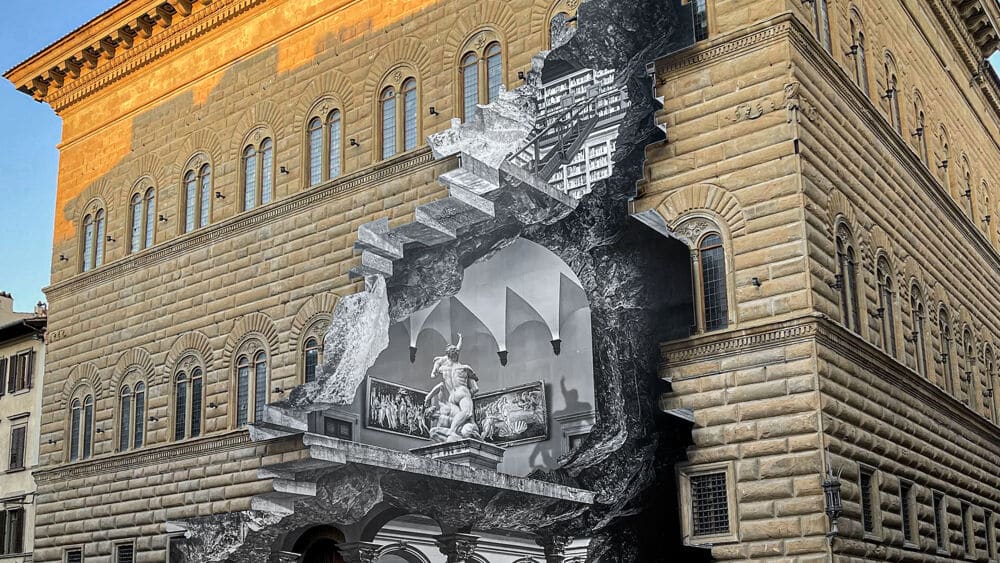
Confoundingly realistic, its installation under the Eiffel Tower in May 2021 gives the impression of emptiness.
But the man whose homeland is the streets of the world also knows how to get away from the hustle and bustle of the city, as he did in 2021, when he made the Pyramid of Kephren from the site of Giza disappear.
For some twenty years now, this photography and street-art enthusiast has been reinterpreting monuments and city landmarks with his giant photographic collages.
As a committed artist, nothing is left to chance, not even his vocation, born of graffiti as a teenager.
His work at the Palazzo Strozzi, for example, was intended to denounce the closure of museums.
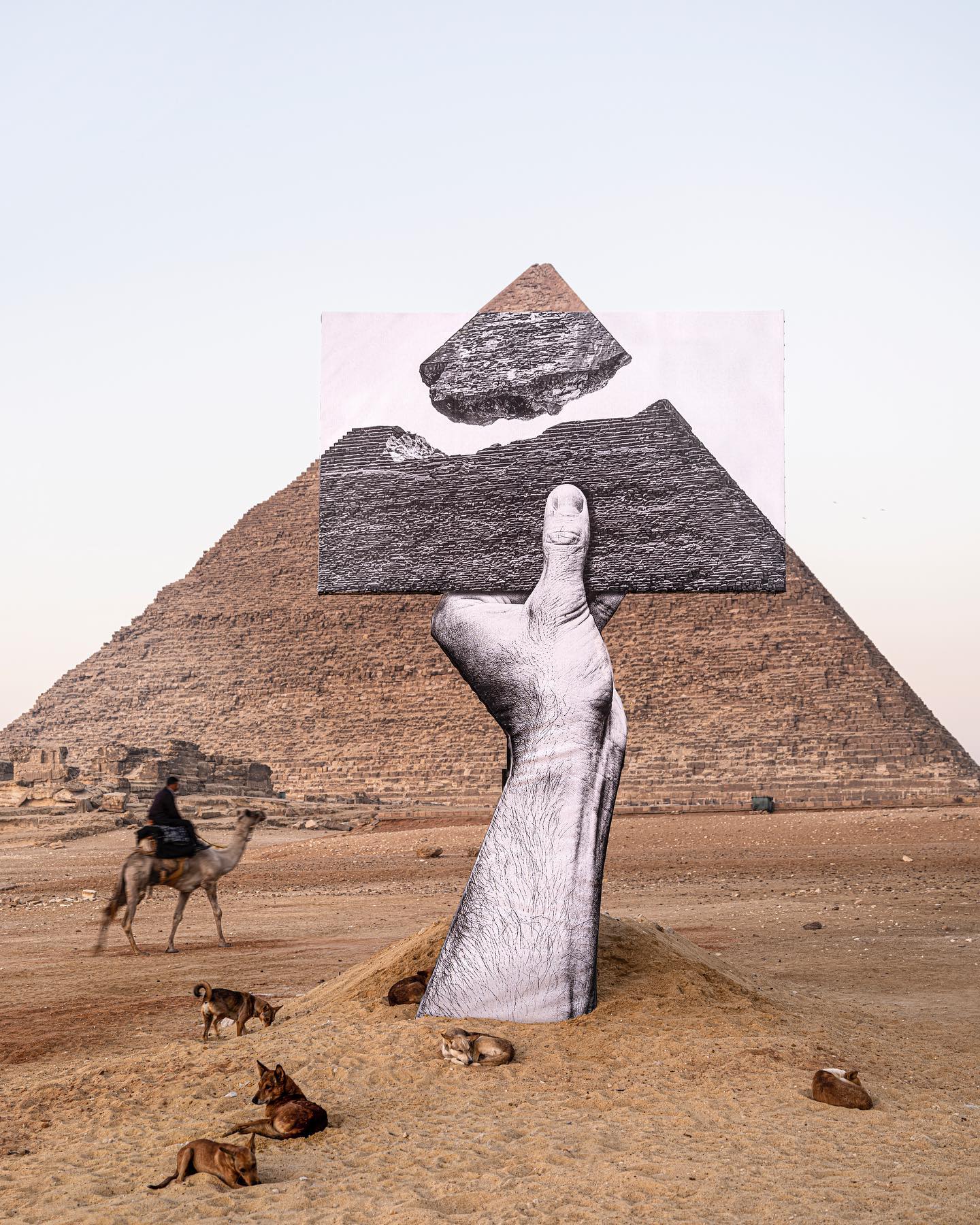
A posture he himself describes as urban activism. He perfected his discipline, covering surfaces as diverse as walls, roofs and basements with his collages.
So much so that he likes to say he “owns the world’s largest art gallery: the walls of the whole world.”
In the open air, but above all in the open heart, as JR’s work plays the proximity card with his public, not hesitating to involve them right from the installation stage, when not by creating thought-provoking interactive works.
Spectacular programming for opera lovers
With this new installation by installation by artist JR, the Paris Opéra is seeking to open up the world of opera – still perceived by many as elitist – and bring opera closer to a public unaccustomed to the hushed surroundings of its emblematic hall, and even less so to the repertoire of this temple of song and dance.
Like an opera libretto, the artist proposes a metamorphosis of the Opéra Garnier facade in two acts, the first in September and the second in November.
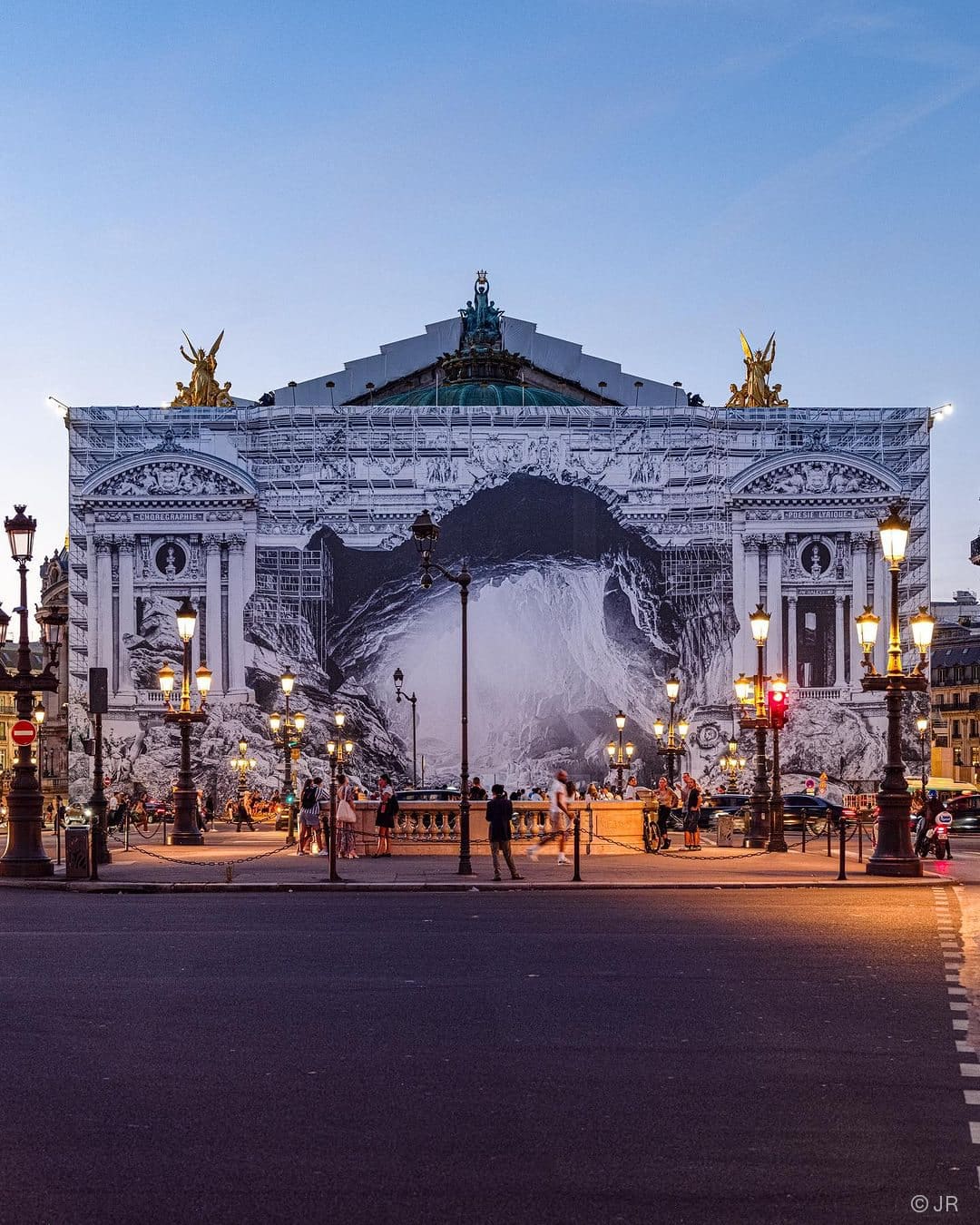
Act I, entitled “L’entrée de la Caverne”, features a trompe l’œil painting and a program highlighting the repertoire presented at the Paris Opera. No less than four free open-air performances will be open to the public, from 9:15 to 10 pm, highlighting works by composers such as Béjart and Rameau.
Among the programmed works is Les Bosquets (The Groves), a ballet doubled as a short film created by JR in collaboration with the New York City Ballet, with original music by Woodkid, Hans Zimmer and Pharell Williams, featuring dancer Lil Buck. An act that marks his debut as a choreographer, inspired by his first project Portrait of a Generation and by the 2015 riots. The work was presented at the Tribeca Film Festival and gave 6 performances at New York’s Lincoln Center in 2014.
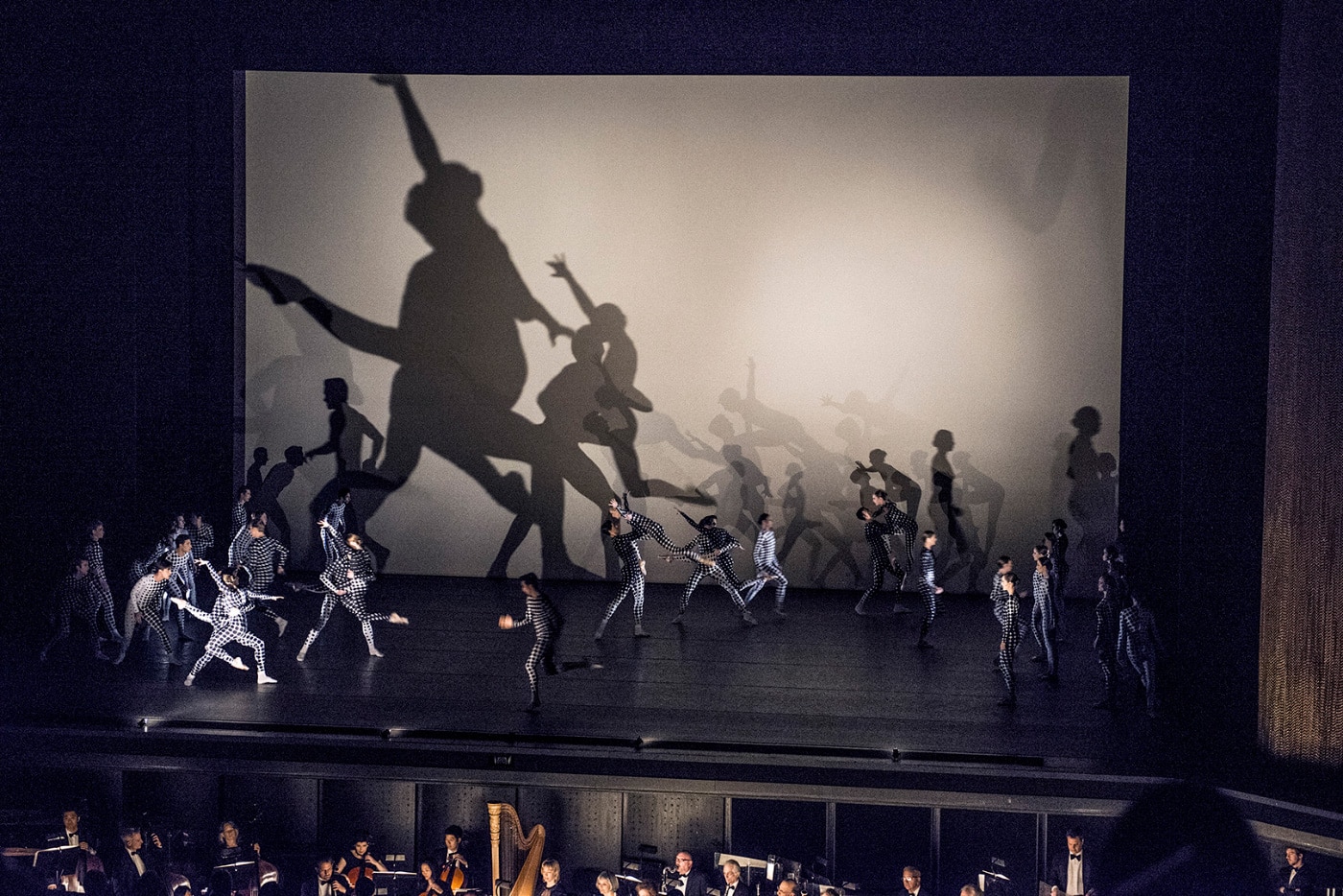
Saturday, September 9: Les Bosquets by JR, L’Oiseau de feu by Maurice Béjart
Sunday, September 10: Boléro by Maurice Béjart, an excerpt from Les Contes d’Hoffmann by Jacques Offenbach, directed by Robert Carsen, Brise-Lames by Damien Jalet.
Saturday September 16: excerpt from Le Parc by Angelin Preljocaj, Die Grosse Fuge by Anne Teresa de Keersmaeker, excerpt from La Traviata by Giuseppe Verdi, directed by Simon Stone
Sunday September 17: The Art Of Not Looking Back by Hofesh Shechter, an excerpt from Les Indes Galantes by Jean-Philippe Rameau, directed by Clément Cogitore.
Finally, in November, Act II will feature a change of scenery. The installation on the building’s façade will be replaced by a stage curtain, designed by the Maisons d’art installed at 19M, notably the embroiderer Atelier Montex.
Between mid-September and the end of October, the Galerie du 19M will be inviting the general public to take part in the embroidery process, free of charge.
A veritable theater within a theater, JR’s work and the surrounding activities promise a total mise en abime of stage art, in the form of a return to the state of nature. What a program!
Read more >
Front page photo: © JR.




